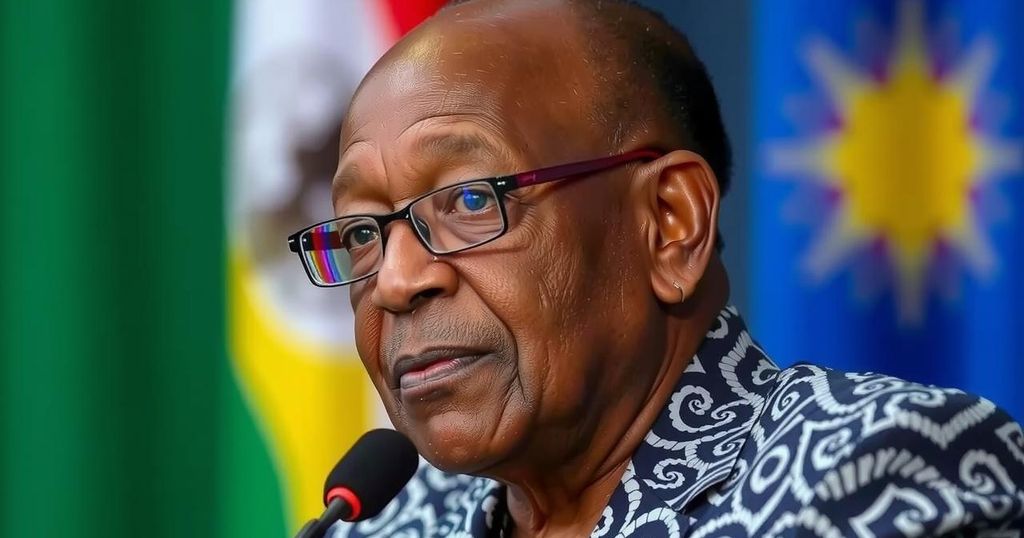Botswana President Concedes Election Defeat, Ending Six Decades of BDP Rule

Botswana’s President Mokgweetsi Masisi has conceded defeat in recent elections, marking an end to the BDP’s nearly 60-year rule. Preliminary results indicate the opposition UDC, led by Duma Boko, has won a significant parliamentary majority. Masisi has expressed support for the incoming administration, emphasizing respect for the democratic process despite his desire to remain in power.
Botswana’s President Mokgweetsi Masisi has officially conceded defeat following the recent parliamentary elections that have resulted in his party, the Botswana Democratic Party (BDP), losing its long-standing majority. Preliminary results indicated a significant upset, with the opposition coalition, Umbrella for Democratic Change (UDC), garnering substantial support across key constituencies. Reporting from the private Mmegi newspaper alongside state radio corroborated the substantial loss for the BDP, stating that results from more than half of the election constituencies had been counted, revealing the UDC’s dominance. In a formal address, President Masisi expressed, “Although I wanted to stay on as your president, I respect the will of the people and I congratulate the president-elect. I will step aside and I will support the new administration.” This statement reflects a graceful acceptance of the electoral result, as he prepares to transition the leadership to the incoming administration, anticipated to be led by Duma Boko of the UDC, whose public comments are still awaited. Analysts noted prior to the election that the contest would be notably competitive, despite expectations favoring the BDP’s continuity in governance. The BDP has maintained control over Botswana since the nation gained independence from British rule in 1966, representing nearly six decades of dominance in the political landscape of this southern African nation. Based on the reported election results from 36 out of 61 constituencies, the opposition coalition emerged victorious in securing over half the parliamentary seats necessary to establish majority control. Specifically, while the BDP managed to win only one seat, the UDC claimed 25 seats, highlighting a crucial electoral shift given that a party must win 31 constituencies to achieve a majority. Botswana is known for its stability and relative economic prosperity, largely attributed to its significant diamond resources. The nation has historically provided its citizens with free healthcare and education, owing to the wealth generated from its diamonds, making it the top global producer by value. However, economic challenges, particularly a downturn in the diamond market, have strained national revenues in recent years and spotlighted the need for economic diversification.
The recent elections in Botswana mark a significant turning point in the country’s governance, as the BDP, which has been the ruling party since independence in 1966, faces a historic defeat. With a population of approximately 2.3 million, Botswana has enjoyed a reputation for political stability and economic prosperity due primarily to its diamond wealth. The elections have been closely watched, not only for their immediate political implications but also for the broader context of Botswana’s political evolution and the changing dynamics of its socio-economic landscape. The electoral results have raised questions about the future direction of the nation, especially as it navigates challenges linked to fluctuating diamond revenues and the imperative of diversifying its economy.
In conclusion, the election results reveal a transformative moment for Botswana’s political landscape, with the BDP conceding defeat after nearly six decades in power. President Mokgweetsi Masisi’s respectful acceptance of the results signals a commitment to democratic principles and illustrates the willingness to facilitate a smooth transition of governance. The emergence of the UDC as the leading party suggests a shift in the electorate’s preferences, which will undoubtedly shape the future trajectory of the nation as it strives to address its economic challenges and harness its potential for growth in a competitive political environment.
Original Source: www.theguardian.com







